Adopt best practices to build stronger partnerships between your career services office and academic programs.
Career services is uniquely positioned to identify, build, and develop strategic and impactful partnerships with any number of stakeholders across campus. They can serve as a key catalyst for integrating internship programs, experiential learning, and career development into curricula. Career services can also help non-academic units professionalize their student employment programs that can springboard into career development. On top of that, they can connect with and serve an institution’s main external stakeholders — alumni and employers — to ensure mentorship and employment opportunities that are of shared benefit on all sides.
Identifying, building, and developing these relationships and programs takes dedicated leadership, a flexible mindset, and innovative thinking in workflow. Our program will help leaders of career services programs rethink their role on campus and develop crucial partnerships to best serve students.
Join us for this day and a half workshop and work through five case studies of institutions that have successfully implemented academic and career services partnerships. You will learn about the barriers they encountered, how they’ve overcome these challenges, and what made them successful. You will also have time to work with peers and facilitators to adopt or adapt similar models for your unique institutional context.
Who Should Attend
Career services leaders who are looking to integrate with academic programs and partner with faculty will have the opportunity to examine other successful programs and initiatives. You will leave this event armed with best practices for how to identify, build, and develop these strategic partnerships on your own campus.
Tiered pricing is available for teams - see the registration row below for details!

Agenda
8:00 a.m. – 5:15 p.m.
This opening activity will give you the opportunity to self-assess where are you on the spectrum of creating partnerships between Career Services and academics. You will discuss what has been your biggest challenge so far and will gain an understanding of where others are in this process.
We will frame the conversation around why it is imperative to get academics involved in career development. Employers consistently find that students have difficulty articulating their skills and competencies. Universities often find it difficult to translate their curriculum into skills that will serve students upon graduation. This responsibility is too great to be borne solely by career services staff. This session will help you to better make the case for building these key partnerships on campus.
Learn how Kennesaw State’s career services department works closely with faculty by building flexible working structures across two campuses. Together, they have built close working relationships so that there is a seamless transition between career skill development and content that students are learning in classrooms.
In this working session, you will have an opportunity to consider how you might work with different entities in a variety of ways. You will consider the goals and needs of stakeholders and create ideas for partnerships, which you will then have the opportunity to share with peers and facilitators for feedback.
See how the University of Nevada Reno has worked closely with faculty to create a career education curriculum that ties directly to the learning outcomes of the class. In many cases, faculty have not worked outside of academia for some time and may not be aware of emerging practices in searching, applying, interviewing, and working in today’s environments. You will learn how UNR created a partnership with faculty in co-creating a career education curriculum.
This working time will allow you to take a closer look at sample syllabi and see where you could include career education topics. You will also have a chance to discuss and learn what similar practices are already happening on other campuses.
In this final session of the day, you will learn how DePaul University has created career ecosystems beyond academics by creating on-campus internships. These types of internships are especially helpful for campuses that are not located near metropolitan areas or who serve students who may not have viable means of transportation and housing outside of the greater campus area.
8:00 a.m. – 12:00 p.m.
We’ll examine how the University of Arizona worked closely with their career services counselors to help them create key partnerships on campus. Moving career services from transactional to educational requires a mindset shift. Instead of simply helping students with career skills, these new models of working require counselors to become meaningful collaborators in supporting the academic mission of the university. Working with faculty and helping them to understand their role is critical to success. Our instructors will help you think about how to move your department further along this continuum.
As you implement your ideas, it will be critical for you to assess your progress as you go. Our instructors will help you to consider methods of assessing your effectiveness, to monitor growth, and to determine next steps.
In this final working session, you will have an opportunity to identify next steps for when you return to your campus. Facilitators will be on hand to provide ideas and feedback.
![]()
Speakers
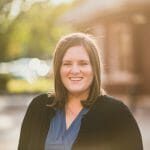
Ana Baida
Executive Director, Department of Career Planning and Development
Kennesaw State University
Ana became the Interim Director of Career Services in 2014, and shortly thereafter was named the Executive Director of what she and her team rebranded as the Department of Career Planning and Development to better frame the work. Ana enjoys working at Kennesaw State because it is an innovative institution that provides opportunities to think strategically and holistically about best practices on an ongoing basis.
Read Ana's full bio here.
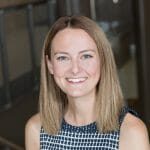
Mary T. Calhoon
Associate Director, Nevada Career Studio
University of Nevada Reno
Mary T. is the Founding Associate Director of the Nevada Career Studio at the University of Nevada, Reno. She is the author of two 2018 articles published in the NACE Journal about the studio model for career services. Mary T. has presented at NACE, MPACE, and NASPA Conferences to national and regional audiences about the Career Studio’s innovative work, inspiring a growing consortium of schools experimenting with the studio model.
Read Mary T's full bio here.
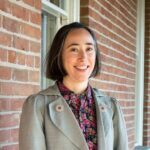
Annie Kurtin
Associate Director for Student Engagement and Career Development
University of Arizona
In her current role, Annie oversees the 100% Engagement Initiative – a campus-wide program that creates and connects undergraduates with opportunities for experiential learning, both within and beyond the classroom. Annie works across campus with academic partners to develop innovative skill-building programs to provide students with both hands-on technical and soft-skills applications.
Read Annie's full bio here.
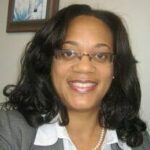
Brenda J. Williams
Director of Career Experiences, Career Center
DePaul University
Brenda oversees the teams that manage Student Employment, the EDGE program, Employer Engagement and the Alumni Sharing Knowledge Program. She provides strategic oversight and leadership in the development of programming and partnerships that create opportunities for students to explore career options through on-campus and off-campus jobs, internships, job shadowing, mentoring and networking.
Read Brenda's full bio here.
Questions About the Event?
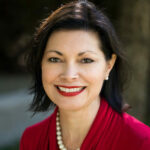
Elizabeth Ross Hubbell
Senior Program Manager, Academic Impressions

